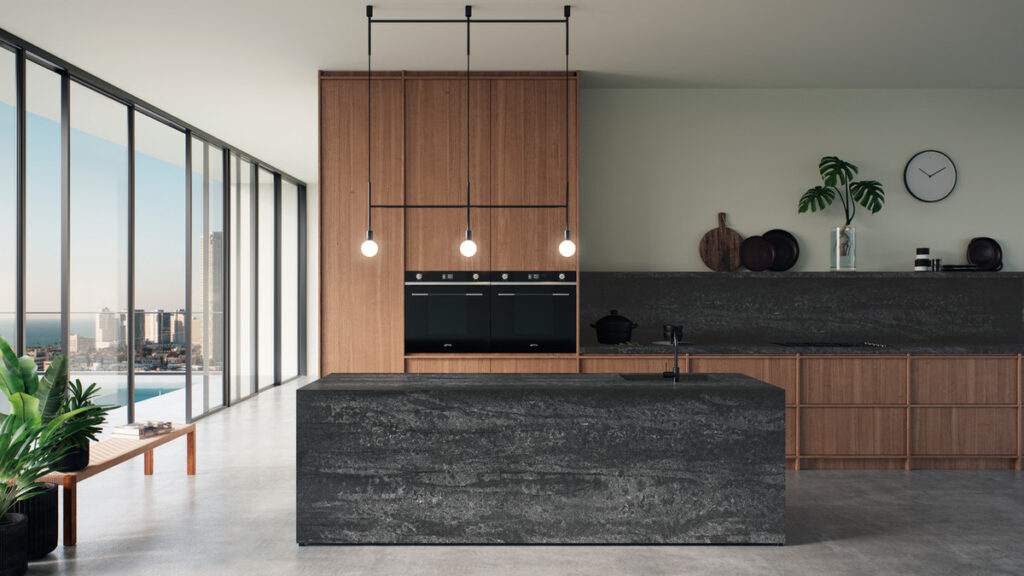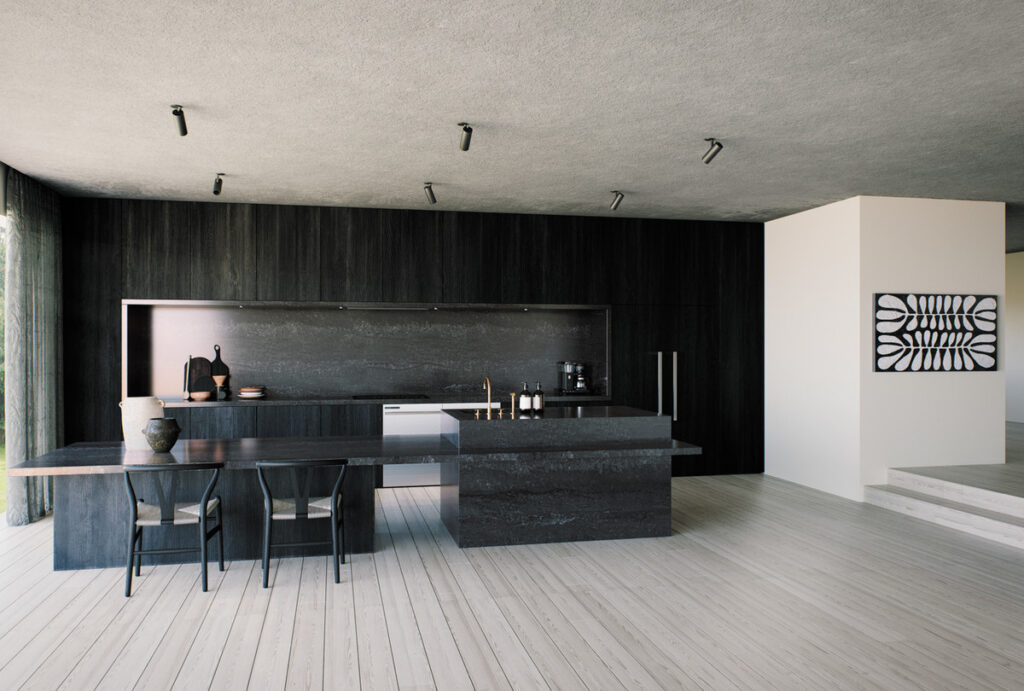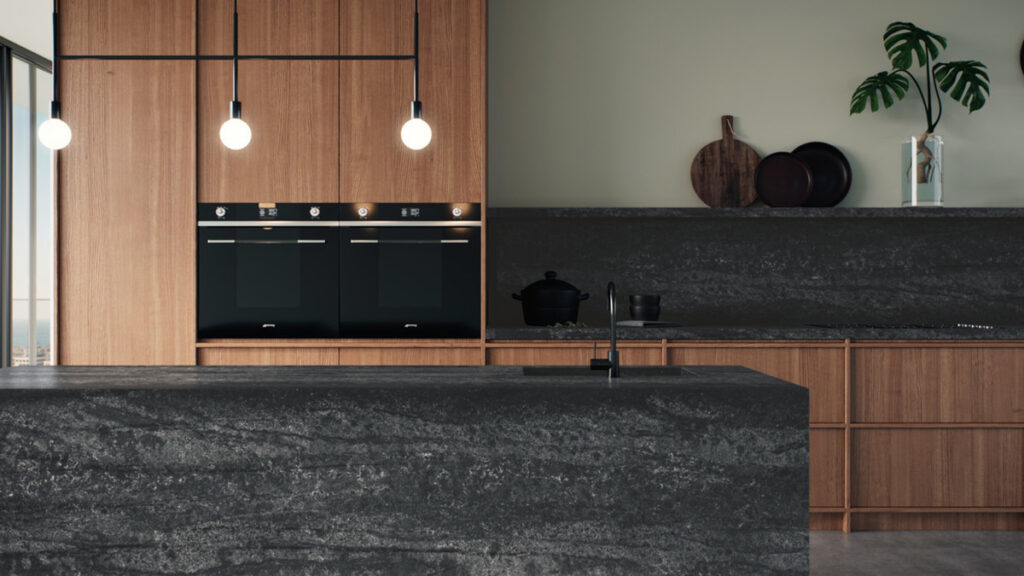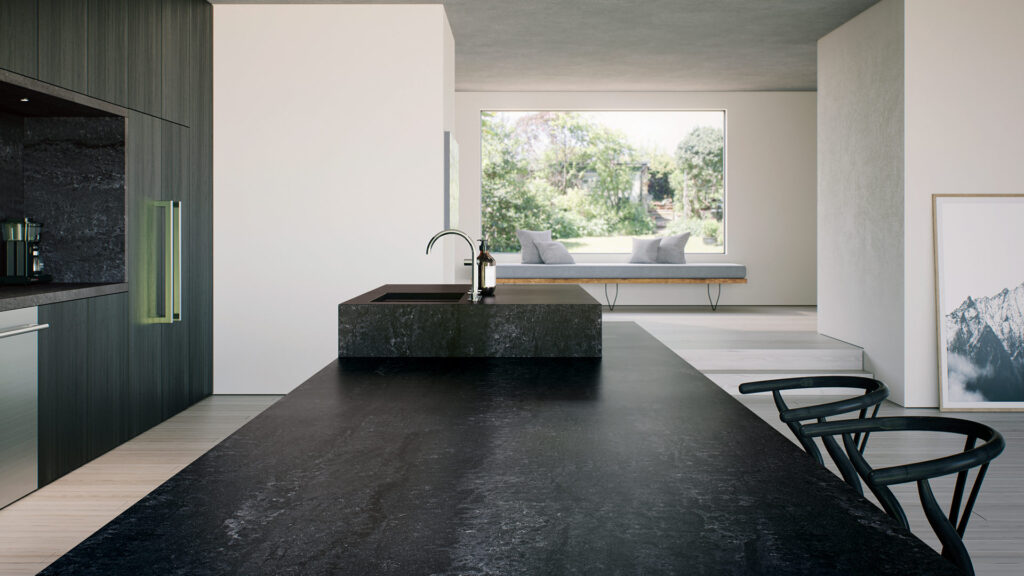Pros and Cons of Bamboo Countertops
6 min read
The process of selecting a countertop material can be daunting as you take into consideration the cost, durability, ease of cleaning, maintenance and the appearance. One of the most common countertop materials is bamboo. Mostly loved for its environmental friendliness, a bamboo countertop is a beautiful sight to behold. The woody feel and touch are enticing, especially in a kitchen space. What many may not know is that bamboo countertops are made from grass and not wood. To take shape, bamboo countertops use an assembly of many pieces to form boards and panels.
If you’re thinking of getting a bamboo butcher block countertop, we have detailed the pros and cons below.

If you opt for bamboo countertops, it will be a more affordable alternative to other countertop materials such as quartz, marble or granite. This is because of the short time frame it takes to grow bamboo and the simple manufacturing process. The cost of bamboo countertops, however, depends on the finishes, colours and stains. The material grade can also affect the cost of your bamboo countertops. Clearance or discount bamboo countertops will be cheaper than designer sourced bamboo countertops. Bamboo countertops can range anywhere from $1,500 to $4,000 at 50 square feet. However, the cost can go up to $10,000, depending on how high-end the bamboo countertops are that you opt for.
Bamboo countertops stain easily. Luckily, cleaning them is simple with soap and a sponge. If the countertop gets sticky with food debris, use a plastic spatula to scrape it off. You can also use vinegar to clean your bamboo countertop. Although bamboo naturally does not allow the growth of bacteria, regular disinfection with vinegar can be added to its antibacterial properties.
With proper care and maintenance, bamboo kitchen countertops can last you a lifetime. However, you should regularly seal your bamboo countertops to make them non-porous. You can also laminate the countertops to increase their lifespan.

Bamboo is among the fastest-growing materials. It also needs minimal resources. Since it is a renewable natural resource, it is an environmentally friendly choice for your countertops. However, some bamboo countertops are chemically treated during manufacturing to improve quality. To maintain environmental friendliness, ensure you opt for bamboo countertops that have been treated with minimal chemicals, leaving them as close to their natural state as possible. Also, choosing a high-quality mineral oil to prolong the lifespan of the bamboo countertop should be a priority. Some mineral oils can add to the toxicity of the countertops and if you want to use bamboo countertops in your kitchen, this should be a major consideration.
Bamboo countertops are a beautiful option with the intricate layering of the attractive natural material. For a modern, chic and woody feel in your space, bamboo countertops fit the bill.
Bamboo cannot be compared to weak and frail wood countertops. Some bamboo varieties are even known to be harder than maple and oak. However, cutting directly on the bamboo countertop can lead to scratches and compromised durability. Scratches can be buffed out or sanded but should be avoided.

Although it’s strong and sturdy, bamboo is not resistant to water or stains. Spills should be wiped off as soon as they occur. To increase the durability of your bamboo countertops, use a sealant. It should be noted that dents in the sealants can further damage bamboo countertops through exposure to moisture.
Visible seams are not an issue for most people. However, you might want to consider other materials if you want a more uninterrupted appearance.
To maintain their functionality and durability, bamboo countertops require regular maintenance. To maintain a non-porous surface, you might be forced to reseal it every so often. Sealants must be limited to wood-safe coatings and sealants.
If you are used to placing hot materials on a countertop, bamboo countertops may not be the right choice for your kitchen. Bamboo is not heat-resistant and heat marks are permanent. Always ensure you place hot objects on a heat protector as opposed to directly on the bamboo countertop.
Bamboo countertops are only available in the natural state of the bamboo material. If you want to add some colour, you could consider using a resin coating, but most people prefer bamboo countertops for their natural aesthetics.
The fastest way to damage your bamboo countertop is by using it as a cutting board. Although it is referred to as a ‘butcher block’, resist the urge to cut your fruits and vegetables on top. This causes premature wear on the surface. Using knives on the countertop will cause uneven wear that may be difficult to seal with sealants. Always keep a dedicated cutting board at a close range. If the countertop gets a knife dent, sand down the spot and apply mineral oil.

Many homeowners find that while bamboo countertops are aesthetically pleasing, they’re also very high maintenance and therefore far from a breeze to own.
Enter quartz countertops, which have become the most popular option among homeowners seeking form and function. Here are some advantages to choosing quartz over bamboo.
Quartz is non-porous, which makes it more stain-resistant than bamboo and even other materials like marble. Consequently, you don’t need to reseal it annually.
Check out this page to see how easy it is to care for quartz countertops.
Quartz is an engineered countertop material. At Caesarstone, our experts craft it into a variety of styles, colours, and shapes, letting you find the perfect look for your kitchen or bathroom.
This level of flexibility simply doesn’t exist with most other materials, including bamboo.
Quartz is a very hard and heat-resistant material. While bamboo is as well, the sealant that sits atop the surface will need to be replaced much more frequently if you abuse it. Quartz has no sealant that can wear off in the event of hot spills (although you should still avoid exposing the countertop to excessive heat as it can cause discoloration).
While quartz countertops typically cost more than bamboo upfront, owners pay less in the long run due to relaxed maintenance requirements.
While bamboo makes exceptional countertops, the cons are quite limiting. The regular maintenance, visible seams, and its lack of water or heat resistance makes it less desirable. And with the limited colours and designs, it only fits into certain aesthetics. As an alternative, consider quartz countertops. The variety of colours and designs, durability, low maintenance and ease of installation are just some of the benefits of quartz countertops.
{{ subtitle }}
{{ i.desc }}
{{ subtitle }}
{{ subtitle }}